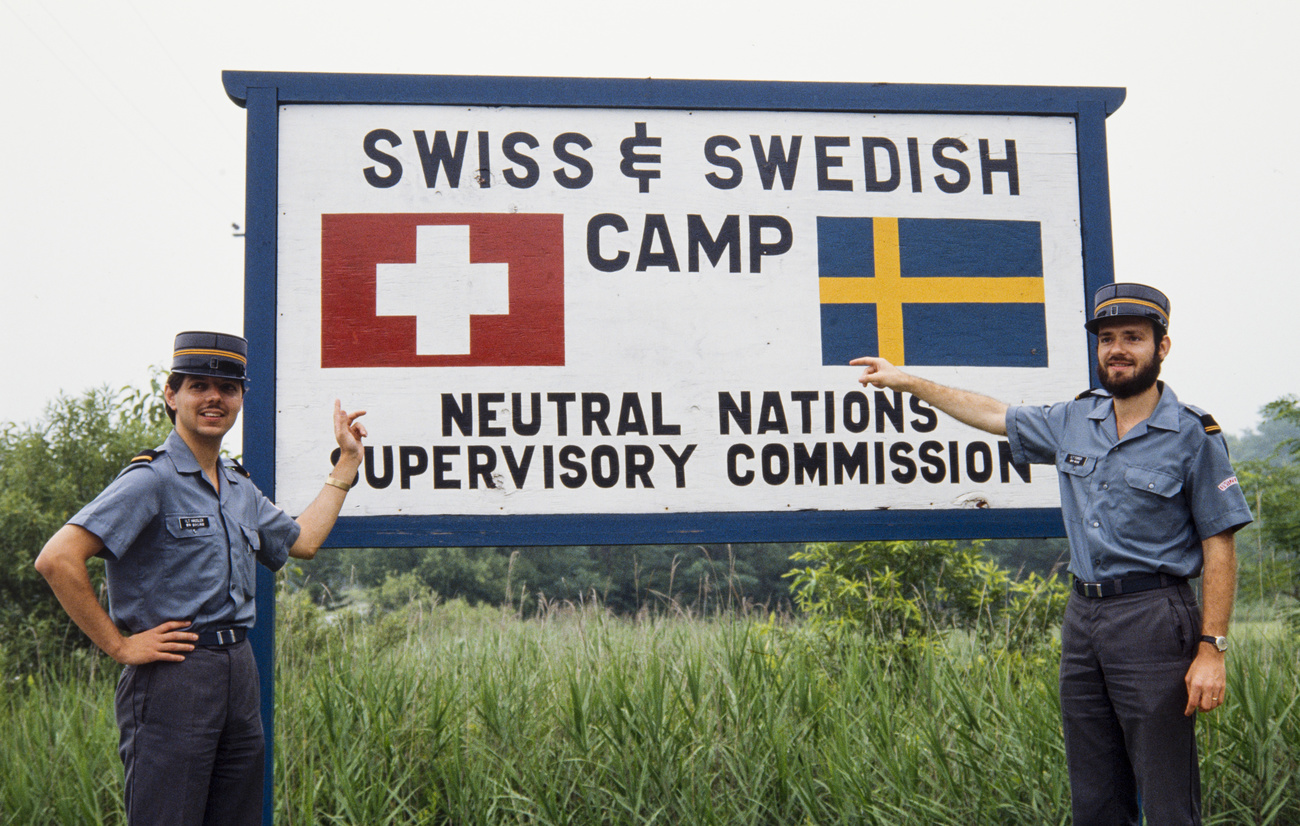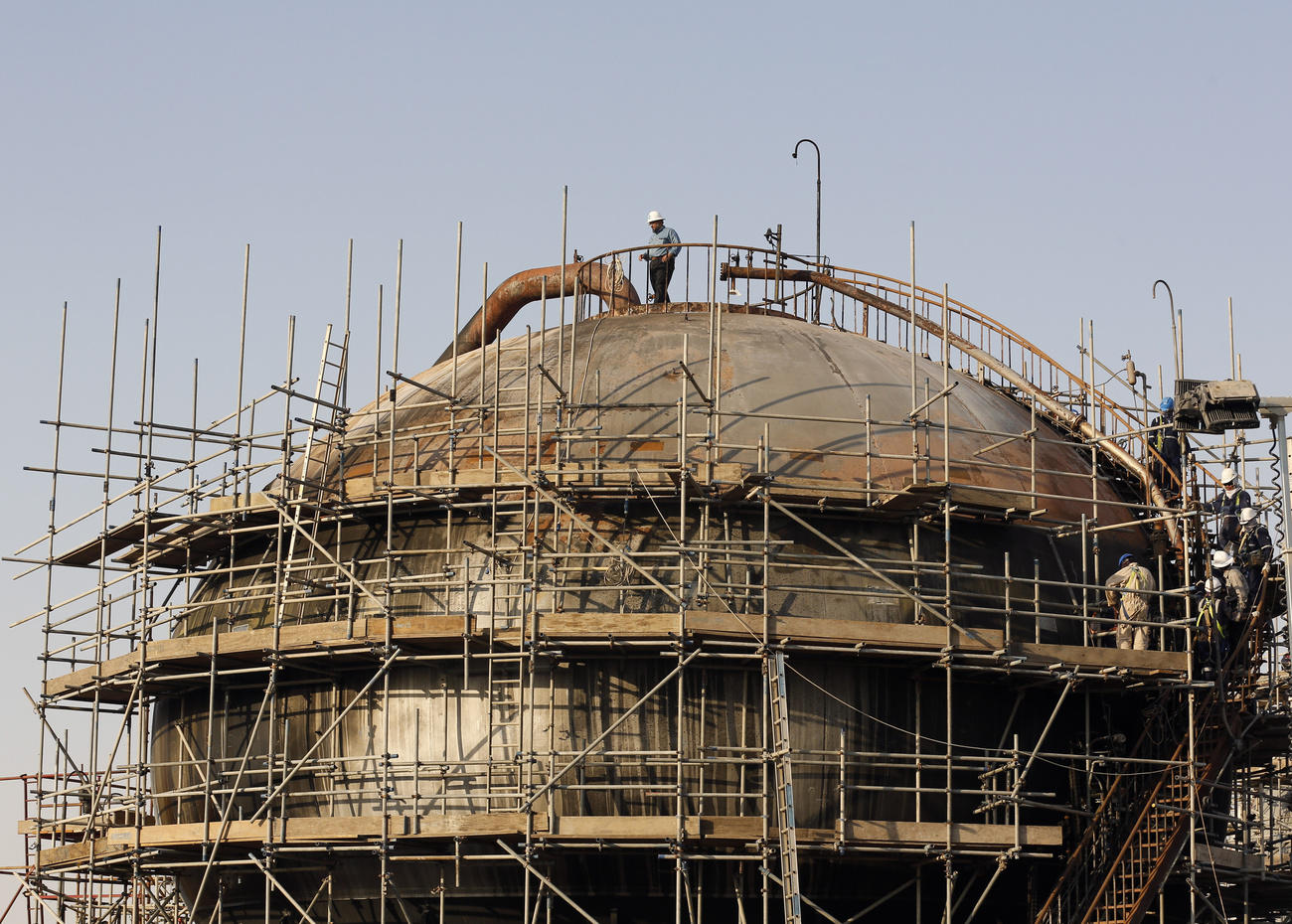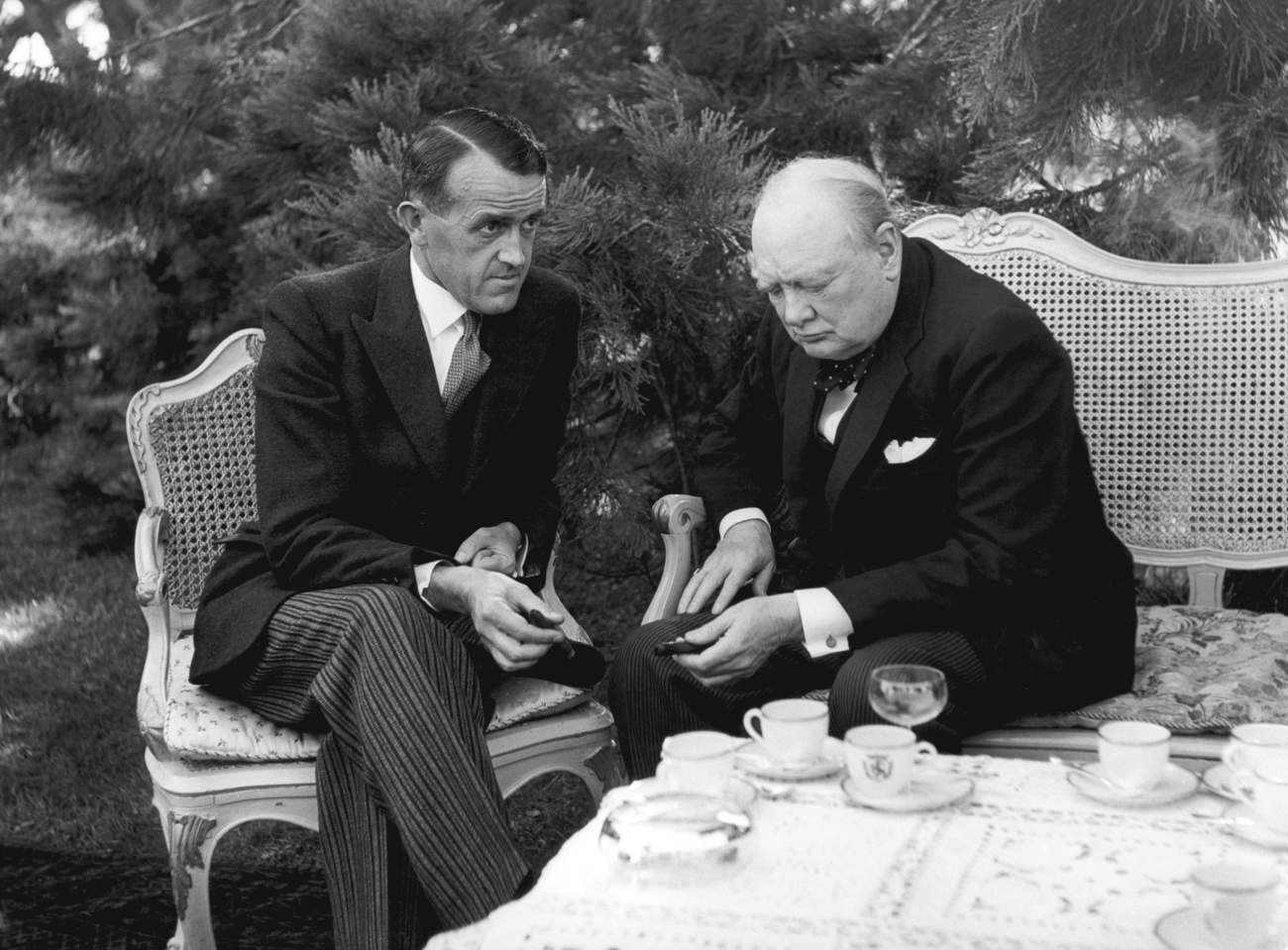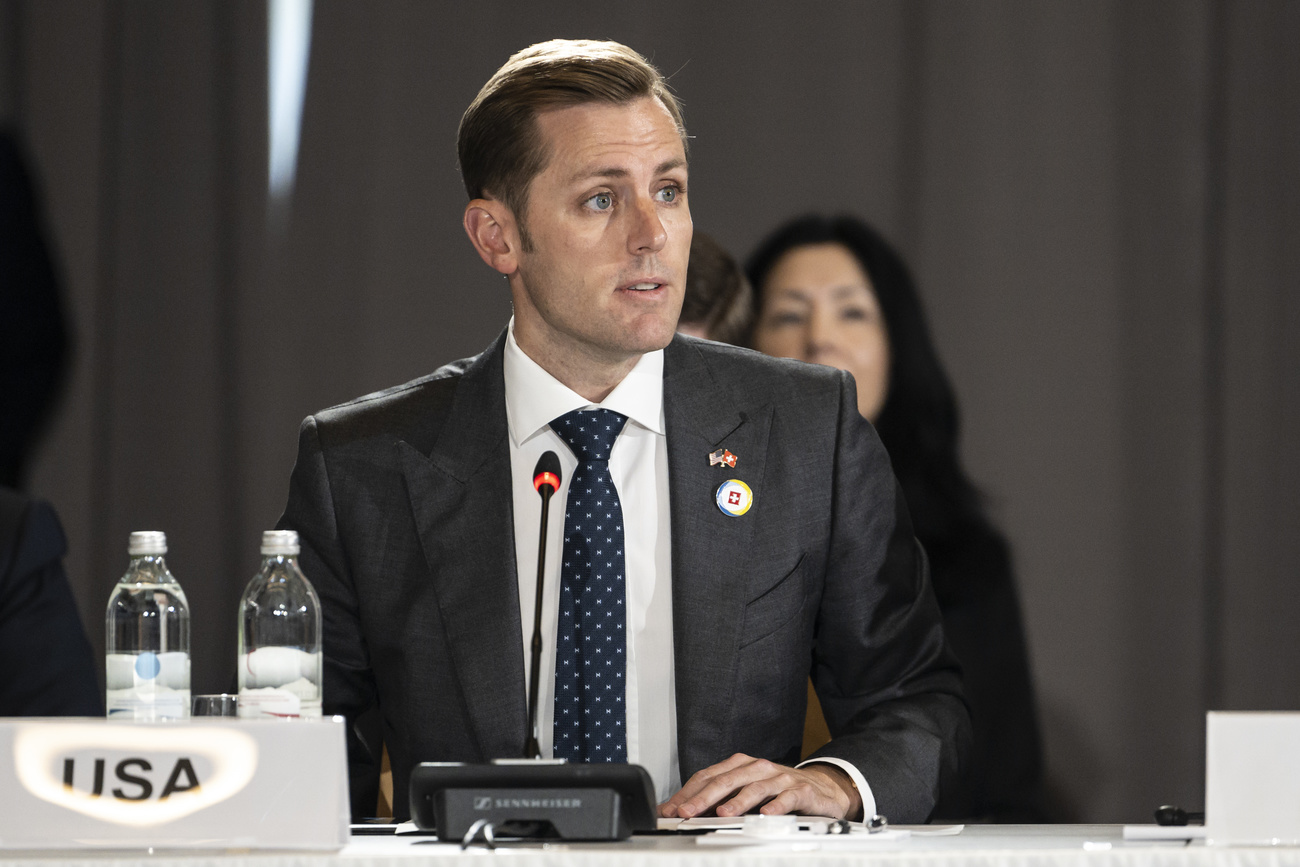
Switzerland as a mediator – the successes and failures

Switzerland has often mediated in international conflicts. In some cases it has made a decisive contribution to making peace, and that is the basis of its reputation for “good offices”. Today, however, Switzerland is only one actor among many.
In 1714 the War of the Spanish Succession ended with an accord signed in the small Swiss town of Baden. This followed two previous treaties concluded in Utrecht and Rastatt. Why did the two parties – France and the Holy Roman Empire – choose this little town as the venue for negotiations? In part because it was located on neutral territory, but also because Baden, a spa town, had the necessary infrastructure to accommodate the more than 300 delegates who spent the entire summer there, enjoying sumptuous banquets between negotiating rounds.

The outcome of the talks was rather modest: the treaty signed on September 7 was essentially limited to a confirmation of the Rastatt peace agreement. But the Swiss government fondly remembered the diplomatic episode as the beginning of a tradition of good offices, even though this would not take on its modern shape until a century-and-a-half after the founding of the federal state in 1848.
From mediation to active neutrality
In Baden, the Swiss Confederacy served less as a mediator than as the stage for a play directed by the great monarchical powers. It was not until the second half of the 19th century, as international cooperation intensified due to technical developments, that the conditions for a modern policy of providing good offices were met.
Switzerland became the seat of international organisations such as the International Telegraph Union (1865) and the Universal Postal Union (1874). In 1872 an international arbitration court based in Geneva ordered the United Kingdom to pay a fine to the United States for supplying warships to the southern states during the War of Secession.
In the so-called Alabama Claims, Switzerland appeared for the first time in its modern mediator role and helped to find a legal resolution to the conflict between the two states. In the years that followed, Switzerland played a leading role in the debates on international arbitration that led to the Hague Conventions, which proved critical to international relations.

More
What are Switzerland’s good offices good for?
The First World War put an abrupt end to conflict resolution through arbitration. In the interwar period Bern participated in difficult mediation mandates on behalf of the League of Nations, for example in Upper Silesia and the Free City of Danzig.
Important peace conferences were also organised in Switzerland, such as the Locarno Conference (1925), which was intended to defuse the post-war conflicts between the European powers. In Lausanne (1923) and Montreux (1936), agreements were reached on the borders of present-day Turkey and navigation on the Black Sea.
From isolation to the myth of Evian
But the Second World War reshuffled the deck. In the immediate post-1945 period the victorious powers distrusted Switzerland because of its economic relations with Nazi Germany. In addition, Switzerland was not a member of the United Nations. Instead, it observed efforts to establish the new international order from the sidelines.
But the UN seat in Geneva, partly due to the work of the new foreign minister, Max Petitpierre, meant that Switzerland was able to become more involved again. The government elected in 1944 strove to combine Swiss neutrality with a more active international presence.

In 1953 almost 100 Swiss army personnel and diplomats were sent as neutral observers to South Korea to monitor the ceasefire on the demarcation line. The deployment, which began in the summer in Panmunjom on the demarcation line at the 38th parallel, was Switzerland’s first involvement in the field of military peacebuilding abroad.
In 1954 Switzerland also hosted the Indochina Conference and in 1955 the first summit meeting between the victorious powers of the Second World War.
But the operation that undoubtedly contributed most to Switzerland’s reputation for good offices was its role as mediator in the final phase of the Algerian War.
At the instigation of the provisional government of the Algerian Republic and with the approval of France, Bern opened channels of communication between the warring parties in 1960. Later it participated in the ceasefire negotiations in Algeria that concluded with the Evian Accords. The Algerian envoys stayed in Switzerland during the negotiations and part of the talks with France took place on Swiss soil.
The success of Evian became a kind of myth relating to Switzerland’s good offices. But this was followed by a series of failures in mediation attempts in Afghanistan, apartheid South Africa and the Falklands War between Britain and Argentina. On the other hand, a summit meeting between US President Ronald Reagan and Soviet leader Mikhail Gorbachev took place in Geneva in 1985.
Search for peace in a multilateral world
The Geneva summit was an early sign of a thaw. The end of the Cold War ushered in a new phase in international relations, characterised by an increasingly important role for multilateral organisations in good offices.
At the same time, in the 1990s relations with the European Union became more complicated and an international debate on Switzerland’s role in the Second World War erupted. Switzerland had to reorient itself.
Bern again tried to gain room for manoeuvre through a more active foreign policy, but this time within the framework of multilateral cooperation. Swiss diplomacy then achieved some important successes in the new millennium, such as a 2002 ceasefire agreement in the conflict in the Nuba Mountains in Sudan, signed on the Bürgenstock hill overlooking Lucerne. In 2009, thanks to Swiss mediation, Turkey and Armenia signed the Zurich Protocols aimed at normalising diplomatic relations between the two countries. However, these agreements have had little effect to date.
Other Swiss peace initiatives in the 2000s – also with mixed results – concerned the conflicts in Nepal, Burundi, Colombia and Cyprus. Swiss efforts in the Israeli-Palestinian conflict also failed to have a lasting effect – instead they provoked Israel.
In 2019, after years of negotiations in Mozambique, a peace agreement was reached between the government and the rebels in Mozambique.
One actor among many
Still, Swiss diplomats’ extensive mediation efforts should not lead to an overestimation of Switzerland’s role in peacebuilding.
Today, international bodies such as the United Nations are more decisive for conflict resolution. Switzerland is one actor among many, with a multilingual and well-prepared diplomatic service and comprehensive know-how. But it often suffers from its international isolation: today, even more than in the past, good offices cannot compensate for solid alliances.
Edited by David Eugster. Translated from German by Catherine Hickley

More
US ambassador: ‘Switzerland’s good offices will continue to be needed’

In compliance with the JTI standards
More: SWI swissinfo.ch certified by the Journalism Trust Initiative

























You can find an overview of ongoing debates with our journalists here . Please join us!
If you want to start a conversation about a topic raised in this article or want to report factual errors, email us at english@swissinfo.ch.